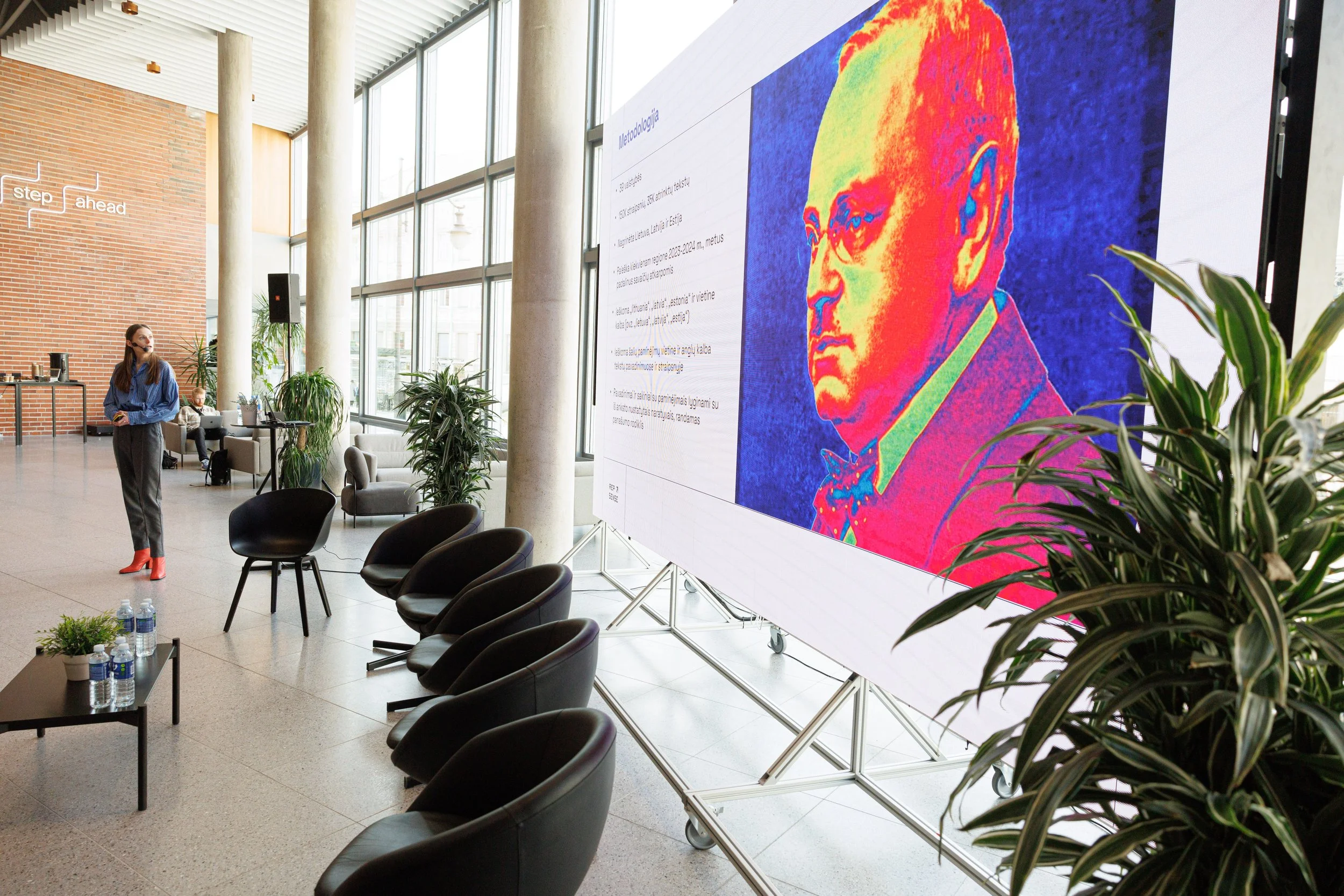Migrant crisis, war, and basketball: Lithuania's image is darkened by information warfare
After analyzing 150,000 search results and conducting the largest communication study of Lithuania to date, specialists from the data analytics company Repsense claim that peaceful times for Lithuania's public communication have ended.
"Let's be blunt: the past year was not good for Lithuania's image. Interest in the country dropped in most surveyed countries, and the narrative was dominated by news about the war in Ukraine and the refugee crisis on the border with Belarus. Even good news, such as the decision to deploy German troops in Lithuania, was met with skepticism in some countries," said Mykolas Katkus, co-founder of Repsense.
According to the expert, country's communication directly affects tourism, investments, or exports. However, these topcis were not dominant last year. "We started the study without any preconceived expectations, aiming to discover and evaluate if people want to travel to Lithuania, invest in our country or buy goods from here. We found relatively few components of proactive communication but discovered many signs of information warfare," said M. Katkus.
The largest narrative about Lithuania's image was country's participation in the basketball championship and Lithuania's victory against the USA in the World Basketball Championship. Latvia's more successful participation in the same championship received several times less global attention.
"So, we have an answer whether it was worth fighting for a better tournament position or beating the Americans on the basketball field," joked M. Katkus.
Discussion panel analyzing research findings at ISM Management and Economics university (photo by Petras Armaitis)
Lithuania was not as popular online as before
According to Rugilė Ereminaitė, the head of research at Repsense, interest in Lithuania declined in Taiwan, the United States, and Italy. However, it is likely that interest in Lithuania increased in our strategic partners - Germany and Poland - due to the geopolitical situation and close partnership.
"Interestingly, all three Baltic states are equally interesting for the same group of countries, even though interest in us as a region for tourism or investment is not very high," said R. Ereminaitė.
According to R. Ereminaitė, non-English-speaking countries search for Lithuania in local languages. In many cases, they do not find enough information. Targeted communication in different languages is essential for managing the quality of articles found about the country and the narratives shaping our image.
Rugile Ereminaite presenting research findings (photo by Petras Armaitis)
Negative information gets amplified
"Our government and society often perceive the events in Lithuania through the prism of our domestic politics. However, negative news about Lithuania spreads surprisingly well worldwide," said Alfredas Chmieliauskas, head of AI research at Repsense. According to him, a perfect example is the migrant crisis caused by Belarusian special services at the border last year, which remained one of the most discussed Lithuanian news worldwide.
The result of these provocations is the harsh image of the country, portrayed controversially or negatively worldwide, especially negatively evaluated in southern countries such as the United Arab Emirates and India. Various aspects of the migrant crisis are the second most highlighted topic in foreign media.
Latvia faces similar problems. Global attention to the elections in the country was almost overshadowed by publications about the voting rights of Russian speakers. The Mexican publication "El País" also drew attention to the situation of Russian speakers in Lithuania. In a photo report, sensitive issues such as Lithuanian russophobia and the inability of young Russian speakers to find work speaking only Russian were addressed.
These negative narratives about the Baltic states disproportionately affect development. According to Chmieliauskas, one specific channel responsible for this is the media group "Euronews," registered in Hungary and associated with Viktor Orbán's environment.
"Some of its texts have accents of information warfare: the 'Euronews' portal evaluates Lithuania very poorly, and its information is readily shared by local publications in many non-English-speaking countries," said A. Chmieliauskas.
Alfredas Chmieliauskas presents AI analysis findings (photo by Petras Armaitis)
The time to act is now
A. Chmieliauskas emphasized that some of the research findings were unexpected. "We know a lot about Russian propaganda in Lithuania, but we poorly understand what the world is interested in and how it evaluates us. I hope that such knowledge will help us better organize both our businesses and institutions."
M. Katkus also stated that it is time to reassess Lithuania's brand strategy. "We developed the brand in times of peace - in a world where we were safe, predictable, and not very interesting. Now the times have changed - news about borders, wars, tensions, and the threat of Russia are widely spread. On the other hand, we need to think about better discovery of Lithuanian internet resources, content planning, and more active work with journalists targeting, denying misinformation, and broadcasting our knowledge," he said.
Repsense managed to quickly evaluate a large amount of data with the help of its created AI system Adler. The Repsense Adler platform identifies text actors, language structure, reliability, tone, and narratives, and finds similarities and new phenomena.
"Systems based on artificial intelligence are only beginning to be a part of various areas of our lives. Although most talk about AI's ability to create texts or images, analytical AI capabilities may have an even greater impact on everyday life," says A. Chmieliauskas. According to him, Repsense's ability to automatically identify narratives and provide recommendations helps businesses compete but is also particularly important during information wars and psychological operations.
Although this study is the largest analysis of its kind conducted to date, Repsense leaders say it is still too small. "Even though we cover a lot of ground with this research, due to time and resource constraints, we barely touched the sphere of social networks and skipped articles that were under a paywall. We focused on articles online and did not include television, radio, and the most popular podcasts." said M. Katkus.
"But the picture is clear enough - and we know what we have to do to improve Lithuania's brand," he concluded.




